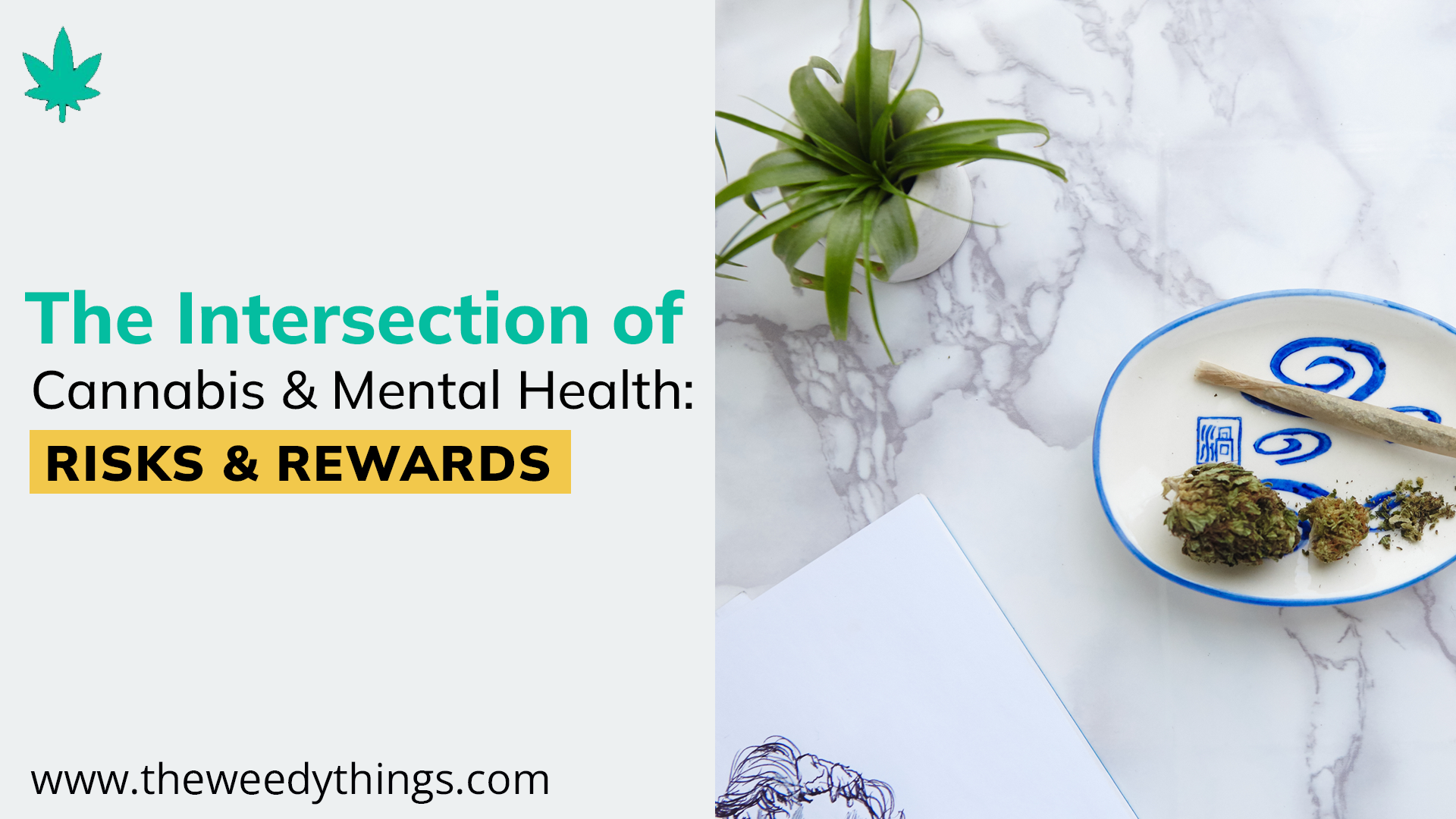Cannabis and mental health share a complex and evolving relationship. For some, cannabis can offer relief from anxiety, depression, PTSD, and even help manage stress and mood disorders. Yet for others, especially when misused, cannabis can trigger paranoia, anxiety, or worsen psychiatric conditions.
The Potential Rewards of Cannabis for Mental Health
1. Anxiety and Stress Relief
Low to moderate doses of cannabis, especially strains high in CBD and low in THC, have shown promise in reducing anxiety and promoting relaxation.
CBD influences serotonin receptors in the brain, which play a role in mood regulation.
2. Depression Management
- Cannabis may help lift mood by enhancing the brain’s production of dopamine (the “feel-good” neurotransmitter).
Some individuals with depression report immediate mood improvement after using certain strains.
3. PTSD Treatment
Research suggests that THC and CBD can help reduce nightmares, flashbacks, and hyperarousal symptoms in people with PTSD.
- Cannabis may also facilitate emotional processing and fear extinction, helping users move past traumatic memories.
4. Sleep Improvement
- Many mental health challenges, such as anxiety and PTSD, are associated with sleep disturbances.
Indica-dominant strains and cannabinoids like CBN and CBD can improve sleep quality and promote deeper rest.
5. Neuroprotective Effects
- Some studies suggest that cannabinoids have neuroprotective properties, helping reduce inflammation in the brain and potentially protecting against disorders like schizophrenia or bipolar disorder (though research is still ongoing).
The Potential Risks of Cannabis for Mental Health
1. Increased Anxiety and Paranoia
High-THC strains can worsen anxiety or induce paranoia, especially in those predisposed to anxiety disorders.
Overconsumption can trigger uncomfortable mental experiences.
2. Depression Aggravation
- Regular heavy use, particularly of high-THC cannabis, may dull motivation, sometimes leading to worsened depression symptoms in vulnerable individuals.
3. Psychosis and Schizophrenia Risk
In people with a genetic predisposition to schizophrenia or psychotic disorders, frequent cannabis use (especially starting at a young age) may increase the risk of early onset.
4. Dependence and Withdrawal
- Long-term heavy cannabis use can lead to cannabis use disorder (CUD), characterized by cravings, irritability, sleep issues, and mood swings during withdrawal.
5. Memory and Cognitive Impairment
THC impacts short-term memory, attention span, and executive function, especially with frequent high-dose usage.
How to Use Cannabis Safely for Mental Health
- Start with CBD-dominant products: CBD is non-psychoactive and offers calming, anti-anxiety effects without intoxication.
- Opt for balanced THC:CBD ratios: A 1:1 ratio can provide benefits without overwhelming psychoactive effects.
- Choose the right strains: Look for strains known for calming effects (e.g., Granddaddy Purple, ACDC, Harlequin).
Avoid heavy, frequent use: Use cannabis mindfully to prevent tolerance, dependence, or mental fog.
- Consult a mental health professional: Always work with your doctor or therapist if using cannabis for mental health support.
Scientific Research on Cannabis and Mental Health
A 2018 review found that CBD shows strong potential for treating anxiety, PTSD, and depression.
- A 2017 study suggested that cannabis can be helpful short-term for mood disorders but could be detrimental with chronic heavy use.
- Research in schizophrenia has warned that THC-rich cannabis could trigger earlier onset in genetically vulnerable people.
New clinical trials are exploring cannabis-based treatments for depression, bipolar disorder, and anxiety with promising preliminary results.
Frequently Asked Questions
Yes, especially CBD-dominant products or strains with low THC. However, high-THC products can worsen anxiety in some individuals.
While cannabis may provide short-term mood improvement, chronic heavy use can sometimes worsen depressive symptoms over time.
Yes, research supports using cannabis, particularly CBD and low-THC strains, to help manage PTSD symptoms like nightmares and hyperarousal.
High-THC cannabis may increase psychosis risk, especially in individuals with a family history of schizophrenia or other psychotic disorders.
Start with low doses, choose CBD-rich or balanced strains, monitor mental health closely, and consult with a healthcare provider if needed.




